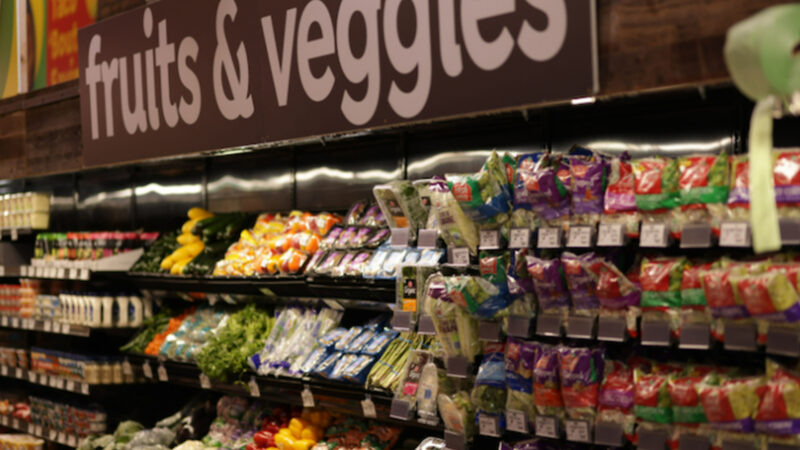In the Media
CRAIN’S CHICAGO BUSINESS: To eliminate food deserts, consider public grocery stores
04. 11. 2024
Public grocery stores meet the community's needs in the vacuum of the market's failure.

This op-ed was originally published in Crain’s Chicago Business.
Everyone needs access to a grocery store and fresh food. This might seem obvious, yet today, 40 million Americans live in food deserts without access to fairly priced healthy food, including 3 million people in Illinois.
Limited access to a grocery or convenience store with fresh food is not just about inconvenience; it is often an issue of life and death. Areas considered food deserts face far higher rates of chronic disease, poverty, and shorter life spans.
Solving the problem of food deserts has been a thorny issue for policymakers, who to their credit have not sat on their hands. To lure chain grocers back into their communities, many have tried tax credits, public money and other incentives. But all too often, large grocery chains will take those subsidies, open up briefly and then pack up shop a short time later because serving a food desert community doesn’t fit into their business model.
Illinois might be a bright spot in an otherwise bleak landscape, in the form of a law signed last year by Gov. J.B. Pritzker called the Illinois Grocery Initiative. This legislation created a grant program with two funding rounds. The second round, which opened this week, could change the national discourse around food deserts because it channels grants to communities interested in a relatively new solution: a public grocery store.
Public grocery stores meet the community’s needs in the vacuum of the market’s failure to account for unchecked mergers and acquisitions in the grocery sector. For perspective, Walmart, Kroger, Albertsons and Costco control more than 40% of the U.S. grocery market. As these retail giants have amassed market power, they have closed stores and forced smaller grocers out of business, impacting everywhere from rural communities like the town of Venice, Ill., to urban areas like the South Side of Chicago.
A public grocery store might sound like a utopian idea, but it has recently proven successful in other parts of the country, primarily in conservative rural communities. These stores function like privately owned stores and carry the same products, but operate more like a public utility. A new study from the Vanderbilt University Policy Accelerator analyzed public grocery options utilized in small towns in Florida, Kansas and elsewhere and found them to be a “workable way to address growing food insecurity in the United States.”
And a public grocery store might seem new, but public options aren’t. They have been around for decades.
Public options exist for broadband, utilities, banking, grain elevators and other enterprises. For instance, the city of Chattanooga, Tenn., operates one of the country’s most reliable and fastest public broadband services. The state of North Dakota owns and operates a bank and grain elevator. The city of Chicago owns and operates O’Hare and Midway airports.
The list goes on. In most cases, governments launched public options as common-sense enterprises to meet a community’s needs.
But despite ample evidence of their efficacy, they have yet to be taken seriously as a tool to tackle food deserts. And that’s unfortunate, because where there are food deserts, there are almost always banking, child care, health care and every other type of desert, too. Public options could be a potent force to tackle them.
This is where Illinois is flipping the script.
Pritzker’s Illinois Grocery Initiative embeds public options within an array of holistic approaches to increase access to food in food deserts, which is why it passed with bipartisan support. This approach can help activists and economists across the political spectrum see the bigger picture.
And what is that bigger picture? Policymakers need tools like the governor’s $500 million closing fund, which enabled the administration to use public money to land a $2 billion Gotion mega-factory in Manteno. Policymakers, at times, will also need to tap public options when the markets don’t meet the needs of communities. Case in point, the Illinois Finance Authority/Climate Bank — a public bank — is in line to receive hundreds of millions to deploy federal climate funds to formerly redlined communities for projects that banks haven’t financed.
Importantly, this initiative offers a robust policy toolkit, one that includes incentives, subsidies, and public options so policymakers can shape the market. So, the conversation shouldn’t be about free markets or socialism; it’s about building equitable markets.
Ultimately, our responsibility to communities is to ensure they have the goods and services they need to grow and thrive. This is why the Illinois Grocery Initiative holds so much promise.